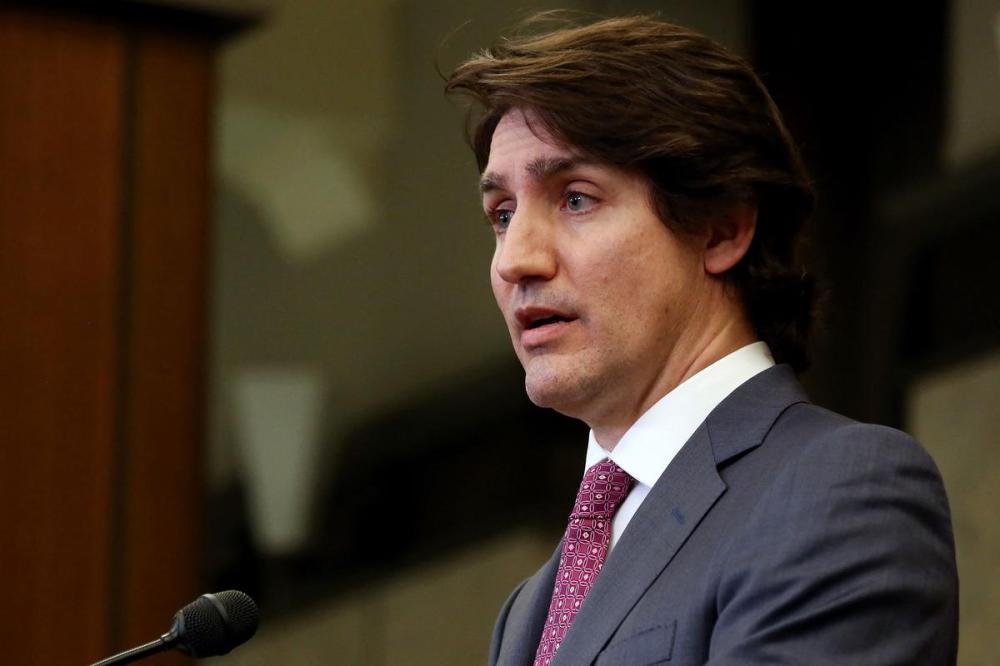Invoking the Emergencies Act is a shocking admission of failure
Advertisement
Read this article for free:
or
Already have an account? Log in here »
To continue reading, please subscribe:
Monthly Digital Subscription
$0 for the first 4 weeks*
- Enjoy unlimited reading on winnipegfreepress.com
- Read the E-Edition, our digital replica newspaper
- Access News Break, our award-winning app
- Play interactive puzzles
*No charge for 4 weeks then price increases to the regular rate of $19.00 plus GST every four weeks. Offer available to new and qualified returning subscribers only. Cancel any time.
Monthly Digital Subscription
$4.75/week*
- Enjoy unlimited reading on winnipegfreepress.com
- Read the E-Edition, our digital replica newspaper
- Access News Break, our award-winning app
- Play interactive puzzles
*Billed as $19 plus GST every four weeks. Cancel any time.
To continue reading, please subscribe:
Add Free Press access to your Brandon Sun subscription for only an additional
$1 for the first 4 weeks*
*Your next subscription payment will increase by $1.00 and you will be charged $16.99 plus GST for four weeks. After four weeks, your payment will increase to $23.99 plus GST every four weeks.
Read unlimited articles for free today:
or
Already have an account? Log in here »
Hey there, time traveller!
This article was published 14/02/2022 (1396 days ago), so information in it may no longer be current.
Many will cheer the Trudeau government’s decision to invoke the Emergencies Act to deal with border blockades and the occupation of Ottawa. They’re fed up with the protests and that’s entirely understandable.
But we will not join the cheering. Federal emergency powers may now be necessary as a last resort, but going that route is a shocking admission of failure by governments at all levels.
This was and remains a policing issue. Right from the start, even before the truckers’ convoy rolled into Ottawa, there were laws on the books adequate to deal with this.

The situation could and should already have been resolved by good intelligence, smart planning, and effective coordination among police forces.
But in Ottawa, in particular, we’ve seen none of that over the past two and a half weeks. Instead, we’ve seen dithering and buck-passing all round. Indeed, until a couple of days ago the federal government’s position was that local authorities had “all the tools and resources they need” to deal with the occupation.
But now, all of a sudden, the federal government is taking the extraordinary measure of invoking the Emergencies Act for the first time since the law was passed in 1988. Even if those powers will be, as Prime Minister Justin Trudeau said on Monday, time-limited, geographically targeted, and don’t involve actually bringing in the military.
So what changed? Listening to the prime minister, it wasn’t entirely clear. He said the occupation and border blockades are illegal and economically damaging; that’s true, but it was true last week and the week before as well.
Indeed, effective and coordinated police action ended the blockade of the Ambassador Bridge over the weekend — without any need for federal emergency powers. And on Monday, RCMP arrested 13 people near the border crossing in Coutts, Alta., and seized weapons, also without those powers.
The problem was not a lack of powers or resources. Once authorities decided to act, they were effective.
But in Ottawa, the failure of local leadership has been total. Ottawa police botched the situation from the get-go; the chief almost immediately admitted his force was outmatched and helpless.
By the weekend, even the federal government (through Emergency Preparedness Minister Bill Blair) said the Ottawa police’s paralysis was “inexplicable.” And local people were taking matters in their own hands by organizing counter-protests.
So how will invoking the Emergencies Act actually change the situation on the ground? Ministers mentioned giving police powers to declare prohibited zones for protests, designating sites like border crossings as essential, allowing RCMP officers more ability to enforce municipal bylaws, and requiring some services (such as tow trucks) to put themselves at the service of authorities.
The government also announced steps to crack down on the money behind the protests, including through crowd-funding sites like GoFundMe. Trucking companies could also find their accounts frozen and their assets (including their trucks) seized. Those measures sound useful, but it’s not clear the Emergencies Act was needed to go down that road.
Now we’ll see how quickly these new powers stop the blockades and bring the occupation in Ottawa to an end.
The City of Ottawa declared a state of emergency on Feb. 6, and Ontario did the same last week. Simply invoking emergency powers is clearly no solution on its own; it all depends how those powers are used, and how effectively police bring them to bear.
Perhaps the hope is that this dramatic move will stiffen the spine of police and finally make them enforce the law. The Trudeau government should certainly hope so, because it now truly owns this crisis.



